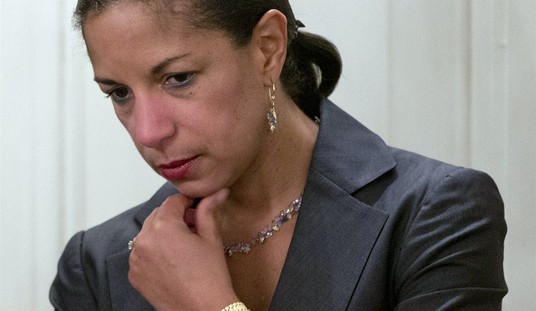I have very little to say about the horrific string of coordinated terrorist attacks in Paris that has not already been said. Those of us for whom 9/11 was a seminal moment in our intellectual development know full well that evil exists in this world, that moral and cultural relativism is utter nonsense, and that radical Islamic jihad is an irredeemably recalcitrant form of cancer fundamentally at war with the West. Leftists, multiculturalists, and those more generally disinclined toward America’s Judeo-Christian cultural heritage — if maybe toward Tocquevillian/Lincolnian “American Exceptionalism” itself — have long promoted the facile platitude that Islam is a “religion of peace,” despite the axiomatic reality that while all Muslims are obviously not terrorists, virtually every major international terrorist attack of note over the past two-plus decades has been carried out by Muslim extremists. The reality, as those like Ben Shapiro have documented, is that there is a pervasive strand of illiberal and virulently anti-Western Islamic supremacy sentiment throughout large swaths of the Muslim world. It may not be deemed “politically correct” to point out the fundamental differences in culture, lifestyles, and values between those of the sharia-imbued Muslim world and those of post-Enlightenment Western civilization, but intellectual honesty demands such clarity. Whether Islam is in need of a broad Reformation is beyond the scope of this post, but Westerners holding doubts about whether an unreformed Islam is truly compatible with Western democracy is completely reasonable and appropriate. For now, let us merely reiterate that America has a solemn obligation to stand with its oldest ally as it grapples with the jihadi threat, and to work multilaterally to help assemble a coalition to eviscerate Islamic State and send it back to the proverbial 7th century whence it came.
Since we are in the midst of a high-intensity presidential campaign, though, it is ultimately necessary and proper to consider how this plays out in our domestic politics. There is a lot going on that, in a vacuum, might otherwise serve as the focal point for a national election: our national debt is approaching $19 trillion, our unfunded liabilities well exceed $120 trillion, we have a horrible vitiation of our rule of law culture beginning in the White House and trickling down, we have a sprawling administrative state anathematic to basic principles of democratic accountability, we have an overzealous and self-aggrandizing federal judiciary increasingly at loggerheads with American religious liberty norms, the national prenatal infanticide lobby is involved in a massive baby organ harvesting ring, the Federal Reserve misaligns the interests of the financial markets and macroeconomy whilst abetting the serial misallocation of capital, and so on and so on. Yet, make no mistake about it — while all of these issues are exceedingly important, the 2016 election is now a national security election, and jihad and borders will encapsulate the two parties’ contrasts with one another.
There is one party, the Democratic Party, which seeks to emulate Europe in terms of expanding the cradle-to-grave welfare state, massively increasing spending as a percentage of gross domestic product, and aggressively embracing a certain variety of multiculturalism abetted by a largely open-borders immigration policy that pays little heed to cultural heritage or assimilation concerns. (Make no mistake about just how bad it has gotten in Europe over the past decades.) Notwithstanding the occasional grievances of the AFL-CIO and Big Labor more generally, the open-borders lobby has sufficient influence within the Democratic Party in 2015 so as to largely dictate stances. At the Democrats’ presidential debate in Iowa last night, the candidates routinely demurred on immigration-related questions about border security in order to shift to what they rather talk about: mass amnesties for illegal aliens and a broader impairment of our national sovereignty. Never mind that Islamic State appears to have cells in northern Mexico, within eight miles of the U.S. — the Democrats show no real interest whatsoever in securing our southern border. They are not particularly intrigued by Kate’s Law, or in cracking down on sanctuary cities. They remain universally committed to not just implementing, but speeding up, their plans to take in large numbers of Syrian refugees — notwithstanding that one of the Paris terrorists appears to have entered the country with a Syrian refugee passport, and that our own Director of National Intelligence, Jim Clapper, is on record as warning about the possibility that Islamic State might seek to infiltrate the country through precisely such a program. In terms of Middle East foreign policy, the Democrats offer a counterproductive Samantha Power-infused “liberal interventionism” that improperly values democracy-spreading over promotion of stable (if maybe illiberal) regimes that might be more reliable allies in the war against the jihad. The Democrats are, after all, the political party that is unilaterally responsible for the recent catastrophic capitulation to the Iranian Ayatollah that will make the Obama Administration the world’s de facto leading financier of jihad, and which last night, in Iowa, had three presidential candidates astoundingly incapable of explicitly uttering the requisite words to identify the West’s geopolitical enemy for what it is: “Radical. Islamic. Terrorism.”
The reality of the Democrats’ utter lunacy on national security — on both the border security and foreign policy fronts — will have ramifications that play into Republicans’ hands. Attacks such as those in Paris tend to harden Americans’ feels on many of these issues. Letting tens of thousands of Muslim Syrian refugees into America may not seem like a great idea at the moment, regardless of how thorough we think our individualized vetting process may be. More generally, feelings may toughen as to completely renouncing all new legal immigration from countries of certain cultural backgrounds. Finally completing the statutorily mandated southern border fence and cracking down on systemic visa overstays may seem more like national priorities. Resisting European-style open-borders by following a legal immigration regime unequivocally — and maybe even singularly — focused on assimilationist goals will become a top concern for swing voter demographics like suburban mothers. Additionally, it is in times like these that the American people rise up en masse to stand with our staunch allies in the State of Israel — the Middle East’s only liberalized Western-style democracy that functions as the West’s man-on-the-spot in the very midst of Islamic world chaos, which functions as a symbolic battleground in this clash of civilizations between free West and totalitarian jihad, and which, in a just world with sufficient Western support, would feel emboldened to aggressively fight many of the West’s fights before the fights reach our own shores. And, of course, the Republican Party is the only one of America’s two political parties that, post-“P5+1” Iran deal fiasco, can reliably be counted on to stand with Israel.
It is not at all a given that this is how things will play out. The Republican Party apparatus, forever constrained by some wealthy open-borders donors and other Chamber of Commerce interests, remains exceedingly hesitant to talk a tough game on immigration. (Never mind that it is precisely due to such hesitance that Donald Trump is still viable as a Republican presidential candidate.) Republican presidential candidates, however, will be forced to lay out in more detail their plans on border security and on taking on Islamic State. They should be frank and unapologetic in their laying out the case for the foolishness of letting in large numbers of Syrian refugees. [mc_name name=’Sen. Rand Paul (R-KY)’ chamber=’senate’ mcid=’P000603′ ], whose neo-isolationist presidential campaign never stood a chance once Islamic State began to rise in prominence in 2014, is now completely unviable despite finally showing up with a pulse last debate. Candidates like [mc_name name=’Sen. Ted Cruz (R-TX)’ chamber=’senate’ mcid=’C001098′ ], who have thorough, tough immigration plans, might benefit; candidates like Jeb Bush and [mc_name name=’Sen. Marco Rubio (R-FL)’ chamber=’senate’ mcid=’R000595′ ], perceived by the base as having serious weaknesses on this issue, might falter. In the Cruz v. Rubio primary showdown that many (and maybe most) conservative pundits on the Internet see as increasingly inevitable, it is hard not to see this as an advantage for Cruz.
The 2016 election, henceforth, is now a national security election in which the parties’ contrasts on jihad and borders will overwhelm other distinctions. Independents do indeed heavily favor Republicans to Democrats on national security issues and, accordingly, Republicans running across the country would behoove themselves to refine their stances on these issues in order to keep that trust. They should resist their party’s “Camber of Commerce wing” and talk a strong game on both an anti-jihad foreign policy and on border security. It it is necessary for conservatives to resist the stifling “political correctness” that results in disingenuous equivocations such as cultural relativism; conservatives must point out the failures of Europe’s longstanding policy of mass immigration from entirely disparate cultures without any meaningful attempt to assimilate into the prevailing culture. Such halfhearted immigration efforts are dangerous for the national fabric, and dangerous for the citizenry.
In the meantime, though, let us all come together and say, “Vive la France.”














Join the conversation as a VIP Member